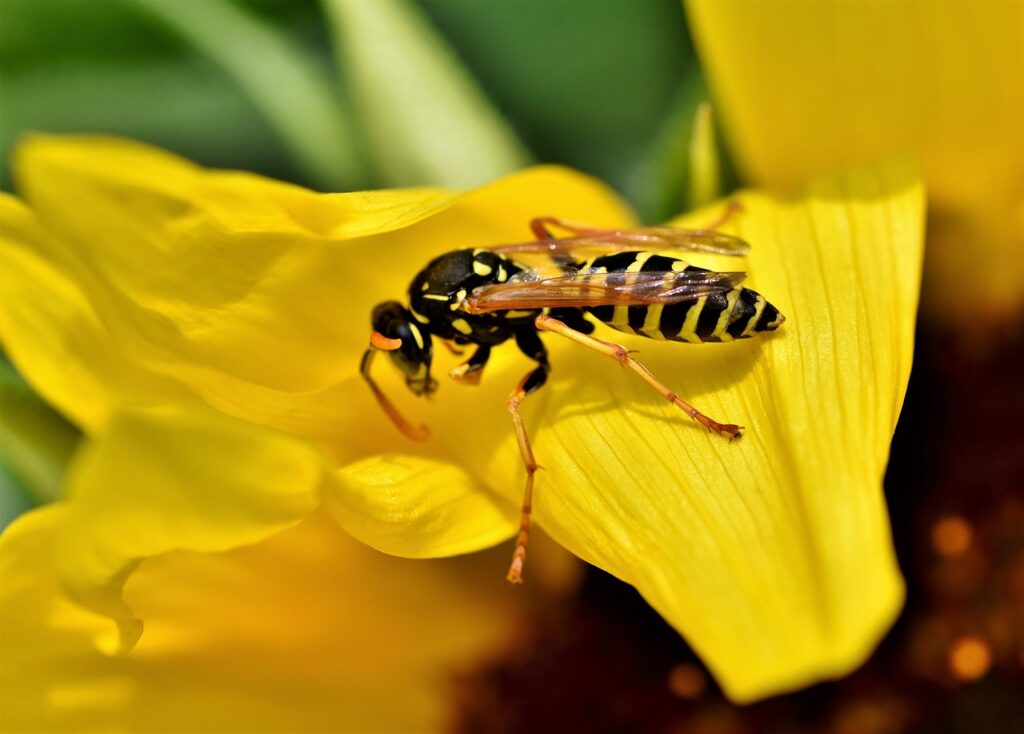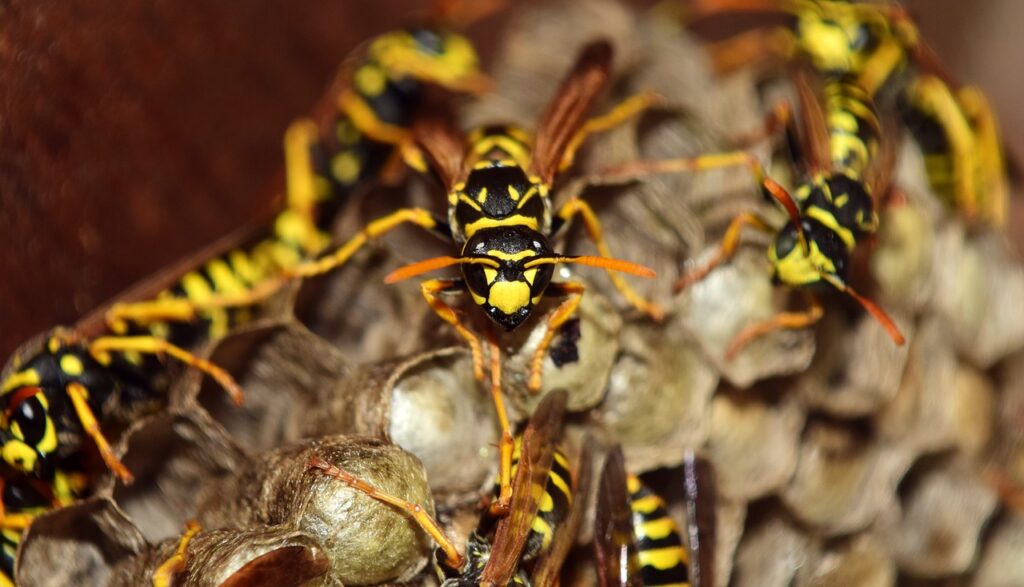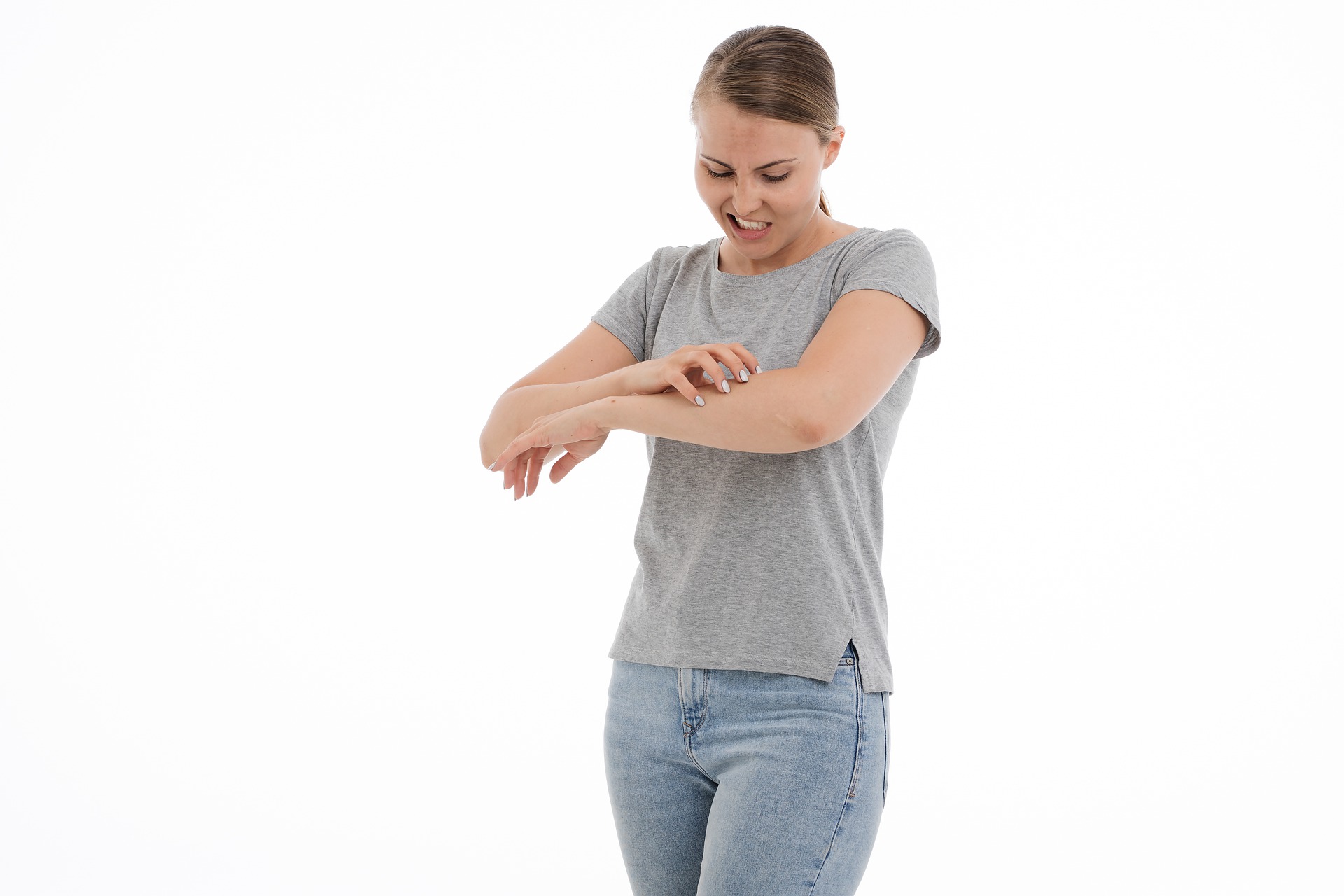If you have been stung by yellow jackets, you know how painful and itchy these stings can be. Pain is subjective and people have different levels of tolerance. But many people have some level of tolerance for the yellow jacket stings. But the itching can be an incredibly uncomfortable sensation that many people find hard to tolerate. So, how do you deal with a yellow jacket sting that itches like crazy?
Why do yellow jackets sting?
Yellow jackets are some of the most aggressive stinging pests out there. They can sting you for no reason at all because they are just that aggressive. There are also three things that make this aggressiveness even worse.
One — they become even more aggressive when they are defending their nest, making yellow jacket nests difficult to eliminate. Two — they become even more aggressive during the colder months of the year because of their desperation from the lack of resources. And three — they can sting multiple times, unlike bees.
Why your yellow jacket sting itches
A yellow jacket sting itches so much because of the venom the yellow jacket has injected into you. Whenever a yellow jacket stings you, they inject venom into you — and into your bodily systems. Your immune system will treat this foreign substance as a threat, releasing histamine to fight it off.
Histamine is a chemical that triggers a variety of symptoms, such as swelling and itching. This is the reason why many itch relief medications are called antihistamines. These medications block the effects of the chemical, relieving you of the symptoms that it can trigger.

How do you relieve itchy yellow jacket stings?
A yellow jacket sting can give you a variety of symptoms. If the yellow jacket sting just itches, consider yourself lucky. There are a lot of conventional and natural remedies you can try to relieve the itch.
However, there are some symptoms you should really look out for, such as the appearance of hives, difficulty in breathing, and swelling of the mouth or throat. Difficulty in breathing and swelling of the mouth or throat are particularly dangerous symptoms. They may mean you are experiencing anaphylaxis. If you experience these dangerous symptoms, seek medical attention immediately. Anaphylaxis is considered a medical emergency.
If you are only experiencing itching, here are some remedies you can try.
- Take over-the-counter antihistamines. Your body releases histamine when a yellow jacket stings you. And this is the chemical responsible for the itching. It just makes sense that taking medication that blocks the effects of histamine will relieve the itching for you. And here’s the best part – these medications are available over-the-counter, meaning you don’t need a prescription to buy them. One of the most famous over-the-counter antihistamine brands out there is Benadryl. However, do take note that antihistamines may have side effects, like drowsiness.
- Apply calamine lotions or hydrocortisone creams. When your yellow jacket sting itches, you may have the tendency to scratch vigorously. This can lead to other health risks like skin irritation, wounds, and even infections. There are certain medications that can activate natural skin substances and cause cooling sensations to avoid these health risks. Such medications include calamine lotions and hydrocortisone creams. And like antihistamines, they are also available over-the-counter, so they are very accessible.
- Try using vinegar. There is also a DIY way to relieve the itch of your yellow jacket sting. Put vinegar in a cotton ball and tap it onto the affected area. Leave the cotton ball on your skin for a few minutes. The great thing about this natural remedy is that it is very accessible. You can literally mix it up in your kitchen right now. You can use either apple cider or white vinegar.
How do you avoid yellow jacket stings?
Prevention is better than cure. Avoid yellow jacket stings now with these simple tips.
- Get rid of the yellow jacket nest. If there are no yellow jackets around, there is no risk of getting stung. The best way to get rid of a yellow jacket nest is through the help of pest control professionals. If you want to do it yourself, use commercial products like insecticides over DIY methods just to be sure of their effectiveness. Also, cover yourself with long-sleeved shirts, pants, gloves, and face masks.
- Don’t use blunt force to get rid of the yellow jacket nest. Yellow jackets are aggressive creatures. And they will surely become even more aggressive when you are trying to destroy their home. Hitting a yellow jacket nest with a baseball bat or some other hard object is a surefire way to get stung. Trying to burn a yellow jacket nest is just as bad. Yellow jacket nests are made of a paper-like material, so they are flammable. If they are attached to your home, you are only putting your home at risk of fires.
- Be extra careful during the colder months of the year. Yellow jackets naturally die off as the colder months of the year approach. This is because of the lack of resources in their surroundings. During this period, their desperation makes them even more aggressive. Be particularly careful during this time of the year. It may also be the best time to call pest control professionals to avoid the increase in risk of getting stung.

If your yellow jacket sting itches like crazy
Yellow jackets are aggressive stinging pests. Their stings can be incredibly itchy because of the venom they inject into your body. Thankfully, there are a lot of accessible remedies if your yellow jacket sting itches. You can try conventional remedies like over-the-counter medications. You can also try natural remedies like vinegar.
However, you also have to be on the lookout for more dangerous symptoms. If you experience difficulty in breathing and swelling in the throat or mouth, seek medical attention immediately. You may be experiencing anaphylaxis, a medical emergency.
Get rid of the yellow jackets to be completely safe from their stings. Getting the help of pest control professionals is the best way to go. But if you want to do it yourself, stick to conventional ways like the use of insecticides.

